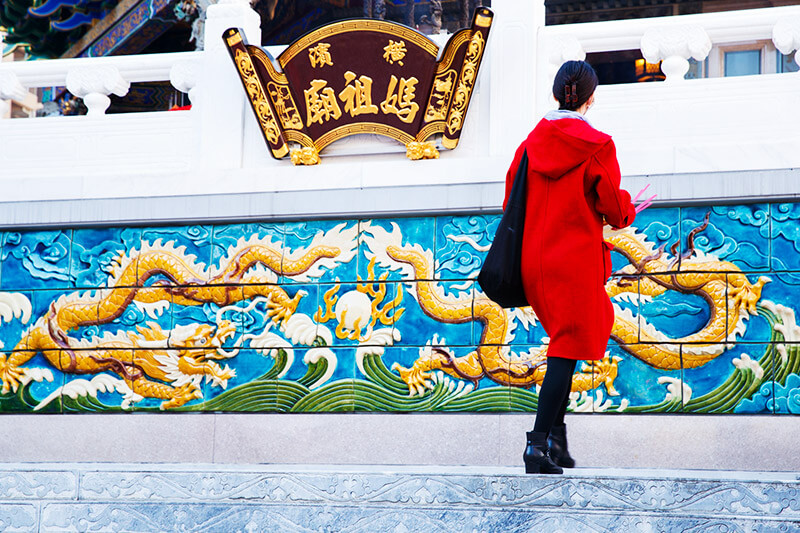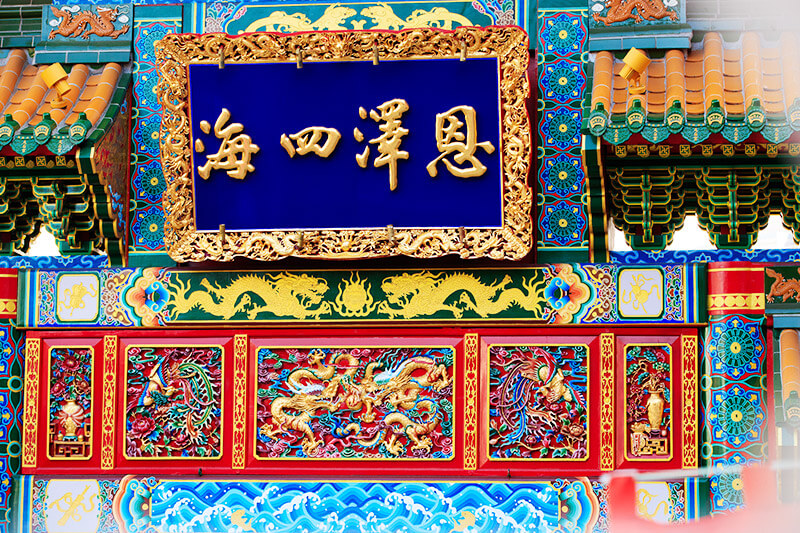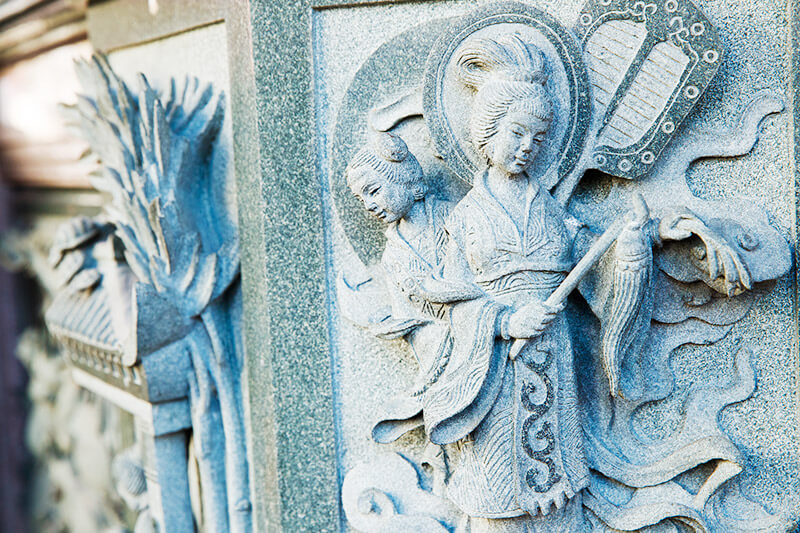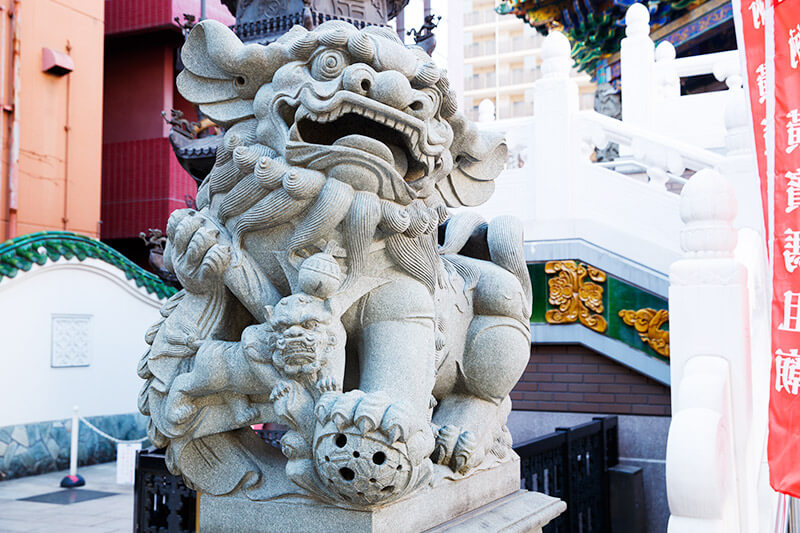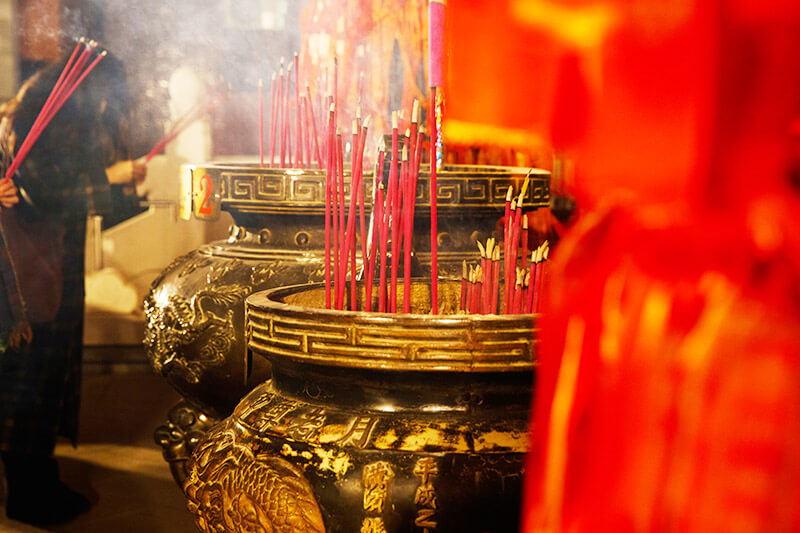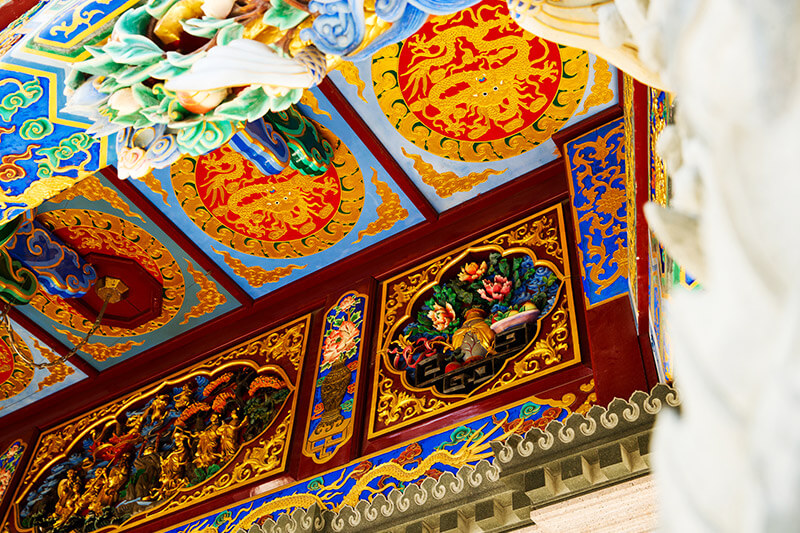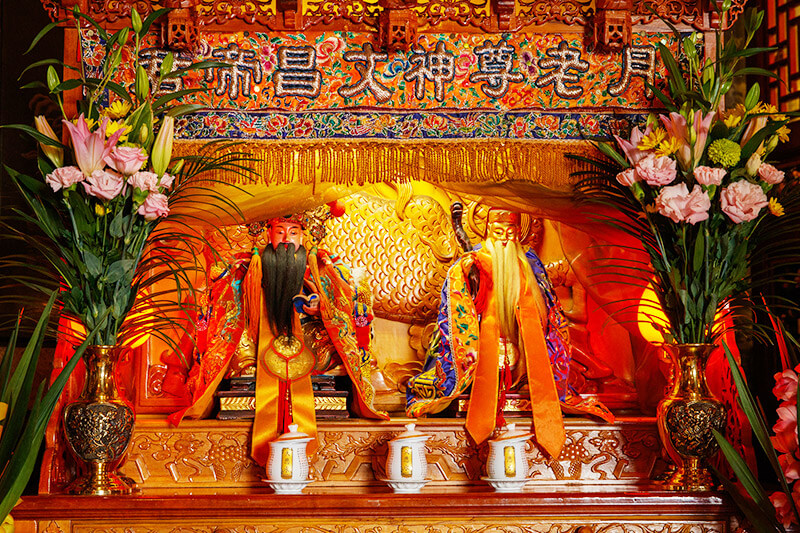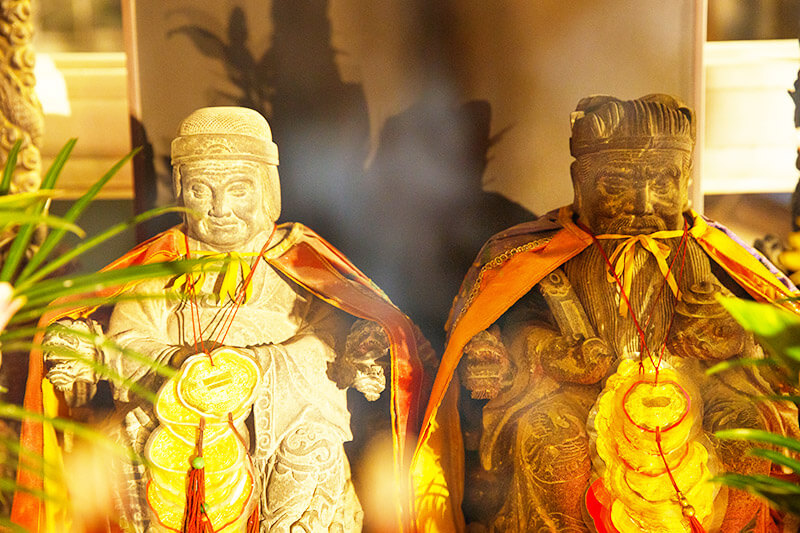Mazu Miao
Yokohama Mazu Miao is a temple dedicated to Mazu (or Matsu), Goddess of the Sea, and was inaugurated on March 17, 2006. Mazu Miao is commonly referred to as Tianhou Temple, the Palace of the Heavenly Empress. This historical figure was a shamaness posthumously elevated to the highest ranks among the gods of Chinese mythology and remains one of the most popular deity of worship today by the Chinese people.
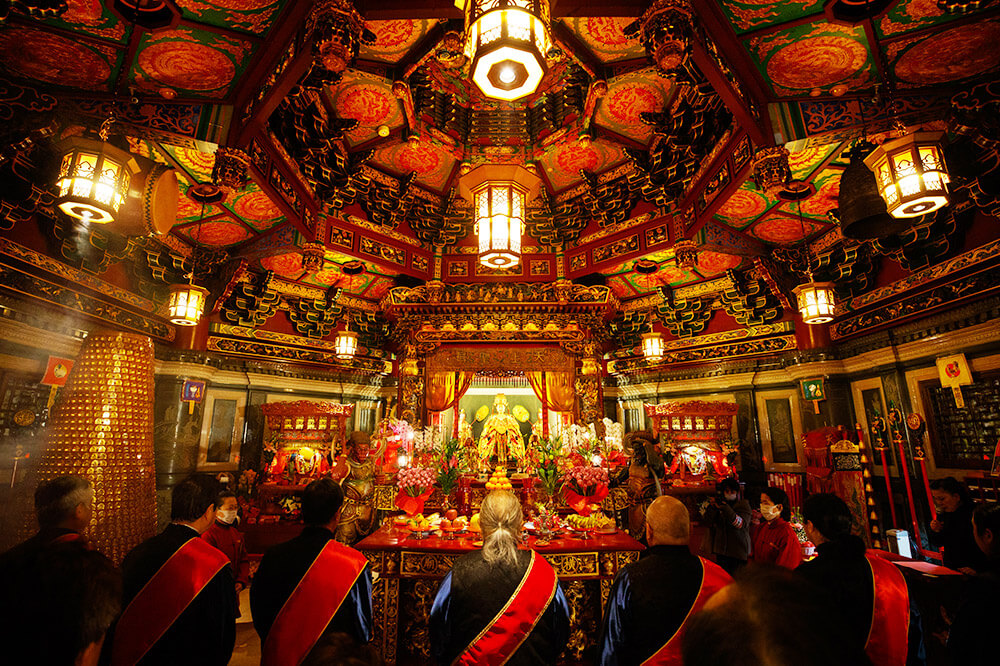
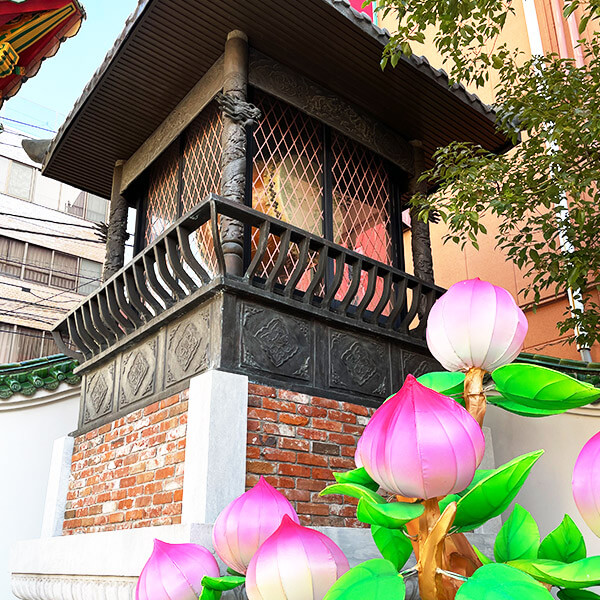
The planning of Yokohama Mazu Miao began in 2003 and the structure was finished in the spring of 2006. In April 2005 during the excavation of the land, historical remnants predating the Great Kanto Earthquake of 1923 were found at the building site, most notably various styles of bricks, glass and pottery fragments.
In the spirit of preserving local history, roughly 1000 historic bricks were carefully salvaged and incorporated into the two structures at the entrance of the temple. In Japan, she is frequently found in temples in port cities like Nagasaki and Osaka where the Chinese travelers landed sought her protection, arriving first in Okinawa in the 1500’s as they made their way through the Ryukyu Islands. It is estimated that there are approximately 20 temples in Japan that enshrine Mazu. The establishment of a temple solely dedicated to the Goddess of the Sea is befitting the port city’s roots, and Mazu Miao serves to educate and preserve Chinese culture in addition to invigorating the future of Yokohama Chinatown. Yokohama Chinatown’s Mazu Miao is the first temple dedicated to this goddess in Japan and has been awarded a temple stamp by Taiwan’s Tainan Grand Mazu Temple.
Inside the Temple
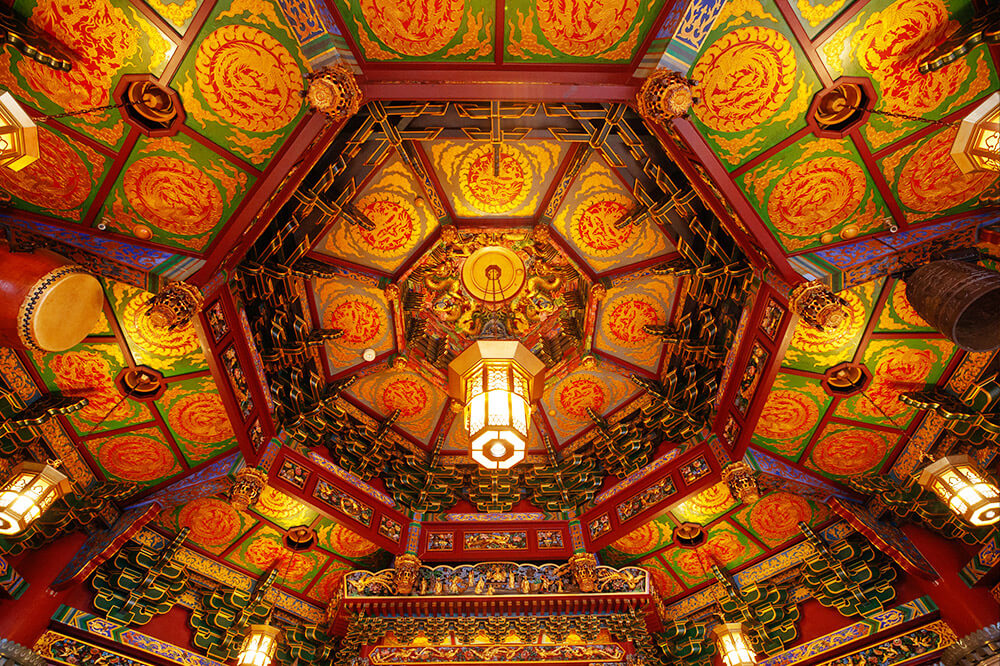
Jade Emperor
In Chinese mythology, the Jade Emperor is the monarch of all deities and the ruler of Heaven and Earth. As such, he protects universal peace and everything related to human life. The ceiling of Mazu Miao soars skywards to draw the worship to the Heavens where the Jade Emperor resides.
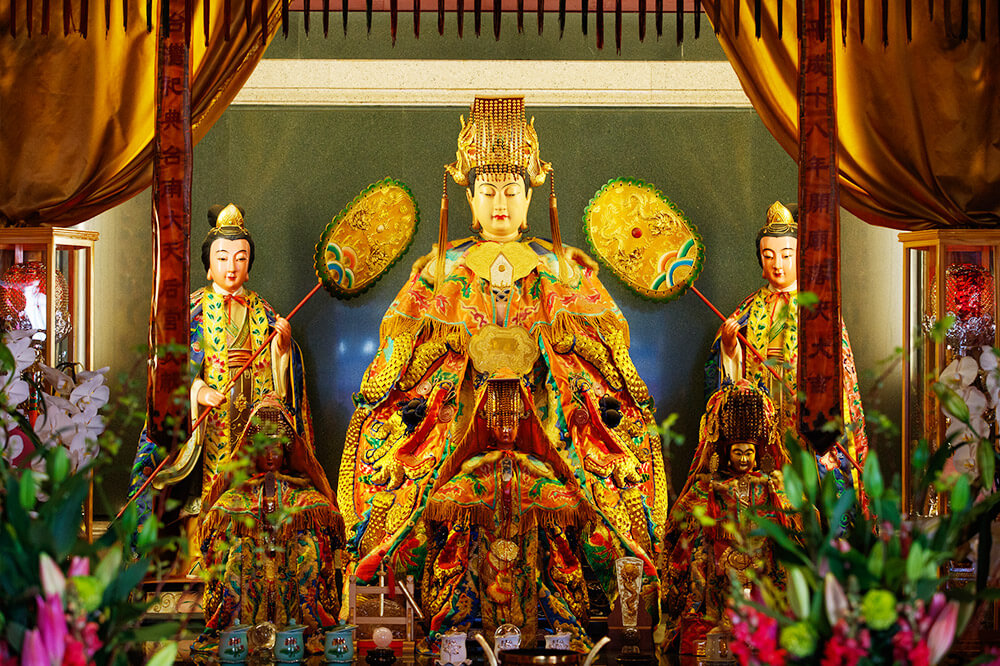
Mazu Empress of Heaven
Mazu translates to “mother ancestor” and frequently referred to as the Holy Heavenly Mother. She is the goddess of the sea and is a deity of the highest order in Chinese mythology. A revered protectress of those who travel overseas, she is believed to be a shamaness of great power offering safety against natural disasters, accidents, illnesses, and evil spirits. Mazu is often seen with green guardian Qianliyan, Thousand-Mile Eye, and red guardian Shunfeng’er, Fair-Wind Ear who were generals defeated by Mazu’s and became her followers. Mazu’s birthday is recorded as March 23 of the lunar calendar.
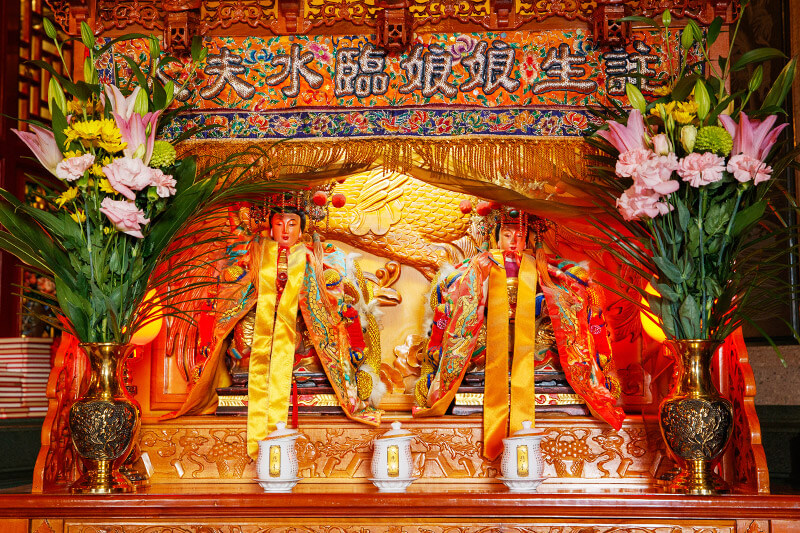
Click or tap to enlarge the image
Lady of Linshui (Left)
This goddess of safe delivery protects both mothers and infants. This shamaness was known for her intellect and clairvoyant abilities and gives mothers strength and triumph over obstacles, protecting children until their 16th birthday. Her birthday is recognized as January 15 of the lunar calendar.
Zhusheng Niang Niang (Right)
This goddess represents fertility and pregnancy. She holds a brush in her right hand and a book in her left to symbolize an old Chinese custom of recording family lineage. Originally representing three sister goddesses depicted into one, her birthday is recognized as March 20 of the lunar calendar.
Wenchang Wang (Left)
He is the god of culture and literature and represents justness, compassion and peace and many pray to him for success in studies and scholarly pursuits. His birthday is recognized as February 3 of the lunar calendar.
Yue Lao (Right)
The Old Man Under the Moon is the god of love and marriage as well as all aspects of interpersonal relationships in life, work and friendships. He is the source of the legend of the red string, uniting good matches and tying a string to their ankles so they can find each other. His birthday is recognized as August 15 of the lunar calendar.
Fu De Zheng Shen
Calendar Also known as Tudigong, this husband and wife gods of nature and land is often depicted as one. Revered by merchants, miners and fishermen, they bring abundance and fortune. In modern days, enterprises worship Fu De Zheng Shen for business and financial success. Fu De Sheng Shen’s birthday is recognized as February 2 of the lunar calendar.
